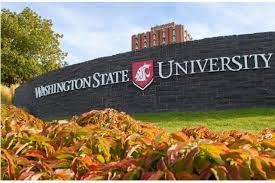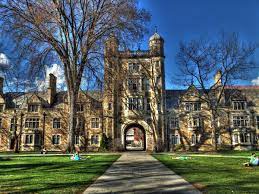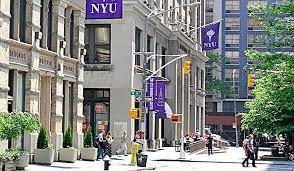Knowing the best universities in USA for nursing is important if you are willing to pursue a degree in the USA. Your future job as a registered nurse (RN) will be influenced by the nursing school and degree program you decide to enroll in. If you’re looking for a nurse, you can study in the U. S. Then you’re in the right place.
In this article, we’ll provide you with details of the best universities in the USA for nursing, so keep reading!
Why Attend Nursing School In The USA?
Tell us about the advantages of international students studying nursing in the United States before we begin our conversation.
- Growth: The projected growth rate for nursing professionals in the USA is 9 percent over the next few years, meaning the field is growing at a rate that is faster than the national average. Nursing professionals seeking to advance their knowledge and abilities are drawn to the US healthcare industry, whether they are licensed, nurses or practitioners.
- Academic Programs: The nursing schools in the USA provide a wide range of specializations and programs in nursing. Anesthesia, adult gerontology, acute care nursing, nursing informatics, clinical services operations, and pediatric nursing are a few of the most common specializations.
- Job Flexibility: Completing a higher school program in nursing may qualify you for a competitive compensation package from the leading US hospitals. However, there are several career options available for nurses in the USA. Whether they want a part-time or full-time work plan, a nurse has the freedom to determine their working hours.
See What Do I Need To Study In The USA
Cost Of Studying Nursing In The USA
The price of nursing school in the USA varies depending on a number of criteria for overseas students.
It can be broadly separated into two areas, namely tuition costs and cost of living.
- Student fees: Depending on the program level and the university you select, the cost of nursing courses in the USA may change.The average cost of nursing courses at US institutions per academic year ranges from 12,930 USD to 61,156 USD.
- Living expenses: In addition to the tuition for nursing programs in the USA, your lifestyle and preferences may affect the cost of living. International students should expect to pay between 1,250 USD and 2,600 USD per month to reside in US states. It covers all expenses for necessities like food, housing, transportation, stationery, and leisure activities.
Have you read The Latest USA College Scholarships Grants and Fellowships for Local and International Students?
Admissions Procedure for Nursing In The USA
Despite the fact that each university has its own application deadlines,
You must be ready with the aforementioned documents in order to finish your application for admission to any of the nursing programs offered by American colleges. The actions you can take to apply are listed below:
- To find out if you meet the criteria for the course, visit the university’s official website.
- Complete the application and pay the required payments.
- When you’ve submitted your application successfully, to see if there have been any updates, log in to the portal.
- Additionally, you can gather all the documentation required for an American study permit.
- Respond to the admissions officer’s letter as soon as your application is accepted.
- If you agree to all the terms and conditions, pay the depositary costs to reserve your spot.
Now that the program’s entrance standards and procedures are known, we can apply. Let’s look at a few of the top nursing programs in the USA.
Best Universities In USA For Nursing
Below is the list of best universities in USA for nursing:
- Duke University
- Georgetown University
- The University of Emory
- The University of Maryland
- Johns Hopkins College
- The University of Washington
- California State University, Los Angeles
- The University of Michigan
- Pennsylvania University
- New York University
- The University of Baltimore
- Yale University
- Chapel Hill, North Carolina’s University
- The University of Columbia
- Miami University
Now, we’ll detail more about each of these universities
1. Duke University

- Tuition fee: $48,294
Duke University, one of the top research universities in the world, provides some of the best nursing programs.
For undergraduate nurses, the School of Nursing at Duke only offers one-degree option: an expedited BSN.
Candidates must first complete a bachelor’s degree in a field other than nursing in order to apply to this program. Although the curriculum takes 16 months to finish, just 58 credits are needed, and before students can graduate, they must complete 800 hours of clinical practice.
The program’s results have been overwhelmingly positive.
Duke’s graduate programs, which include numerous MSN and Ph.D. degrees, are arguably its most well-known features.
Duke University has one of the best nurse anesthesia programs in the country, which would be of interest to nurses who are interested in becoming nurse anesthetists.
2. Georgetown University

- Tuition fee: $61,872
Georgetown University in Washington, D.C., one of the country’s oldest private universities, has a reputable, long-standing nursing program.
Since the BSN employs direct entry, high school students can know out if they have been admitted before committing to Georgetown.
By the time they graduate, BSN students will have accrued more than 882 hours of clinical experience at sites all across Washington, D.C., and the neighborhood. For BSN students, Georgetown also has an honors program. Georgetown University offers a wide range of nursing alternatives for graduate students.
3. University of Emory

- Tuition fee: $53,070
Georgia’s Emory University in Atlanta, which has one of the top healthcare systems in the world, is a fantastic option for nursing students of all levels.
For aspiring nurses, the prestigious private institution offers three pathways: a direct-entry BSN for current high school students, a sophomore entry for enrolled Emory or Oxford College students, and a transfer program for individuals with at least 60 credits.
For both nursing students and non-nursing students, Emory offers a wide variety of graduate-level alternatives.
Although the program has not yet received approval from the regional accreditation, the MSN-pre licensing degree leads to RN certification.
Nine different APRN responsibilities can be attained through the other authorized MSN programs. In order to allow nurses to continue working while pursuing their graduate degree, all MSN tracks are available in full-time and part-time formats.
4. University of Maryland

- Tuition fee: $9,446
The University of Maryland, which is based in Baltimore, is a pioneer in both innovation and research.
The university educates over 41,000 students annually, and nursing students and future nurses will find it to be the ideal setting given its proximity to Washington, D.C. and other significant cities.
The BSN program at UM places a strong emphasis on nursing leadership and instructs students in cutting-edge settings.
Although students must first finish two years of introductory coursework, the degree can be completed in as short as two years.
One of the DNP programs at UM would be chosen by nurses who wanted to become APRNs. Every DNP has a speciality, with well-known choices including nurse anesthesia, newborn nurse practitioner, and psychiatric mental health nursing.
Other graduate-level nursing programs offered by the institution are perfect for nurses interested in positions in leadership, research, or administration.
5. Johns Hopkins College

- Tuition fee: $70,794
A significant amount of research is sometimes required for graduate nursing degrees, and Johns Hopkins University is arguably the top research university in the world.
Despite having an MSN program for non-nursing majors, the highly regarded institution does not offer any undergraduate nursing degrees.
Anyone with a bachelor’s degree in a subject other than nursing is eligible to participate in the MSN program, and graduates do well on the NCLEX.
Many nurses choose to continue their education at John Hopkins to obtain a DNP after finishing their MSN and gaining some practical experience in clinical settings. Each of the university’s 13 DNP options leads to a particular type of job.
6. University of Washington

- Tuition fee: $16,104
The University of Washington, which is in Seattle, offers its nursing students some distinctive advantages.
All students are given the opportunity to perform clinical experiences in a variety of locations throughout the area, including prestigious hospitals like Seattle Children’s Hospital.
Second, nursing students have a number of cutting-edge options available to them, such the expedited BSN with early DNP admission, which is ideal for non-nursing graduates who wish to finish their doctoral degrees rapidly.
The school offers a traditional BSN, but there is no MSN option available. However, UW offers 11 DNP tracks that lead to APRN positions, including pediatric clinical nurse specialist, nurse-midwifery, and adult gerontology acute care.
Most DNP programs last for three years, and by graduation, students have more than enough clinical experience to sit for their certification exams.
7. California State University, Los Angeles

- Tuition fee: $31,026
The University of California Los Angeles is one of the greatest colleges in the West and is renowned for turning out alumni of the highest standard who go on to lead their fields.
The university’s BSN degree program in nursing lays the groundwork for pursuing a successful nursing career or going on to pursue a master’s degree.
The top MSN possibilities in the nursing school are undoubtedly those offered by UCLA. Each MSN degree emphasizes leadership and leads to an APRN speciality, which is a terrific mix for nurses wishing to develop in their professions.
MSN students select a population specialization before selecting a subspecialty within the subject.
8. University of Michigan

- Tuition fee: $17,800
The University of Michigan is one of the top institutions for undergraduate education, and it is situated in the college town of Ann Arbor.
Over 13,000 U-M nursing alumni are employed all over the world, and the BSN degree builds on more than 100 years of nursing education experience.
The institution offers first-year students direct entry and a sophomore transfer program as their entry options.
With focus options in eight distinct areas, the MSN from U-M is one of the best ones accessible.
All eight specialties lead to a particular APRN post, and MSN graduates consistently achieve near-perfect exam success rates.
The MSN combines instruction at the University of Michigan’s Clinical Learning Center with experiences at several clinical facilities in the area.
9. Pennsylvania University

- Tuition fee: 53,166
One of the nation’s oldest universities, the University of Pennsylvania, was established in 1740. Nursing students seeking an individualized education would benefit greatly from the school’s exceptional 6:1 student-to-faculty ratio.
Students in Penn’s BSN program participate in a mentorship program and learn in a cutting-edge simulation lab to enhance their hands-on learning. In fact, Penn offers a number of undergraduate study abroad programs.
There are also MSN and DNP choices available through Penn, with popular specializations include nurse-midwifery, nurse anesthesia, and two pediatric care pathways.
For those seeking to hold leadership positions, there are also graduate degrees in administration, and post-graduate certificate programs are available for nurses with MSN preparation.
10. New York University

- Tuition fee: $56,500
With campuses in Abu Dhabi and Shanghai in addition to its main campus in New York City, New York University truly is a global university with students from 133 different nations. To receive a top-notch education, students travel from all over the world.
Nursing students at NYU have many undergraduate options, including the regular BSN, the RN-BSN, the accelerated 15-month BSN, and the BSN with second-degree transfer. With a 99% NCLEX pass rate among recent grads, all alternatives offer great results.
Of course, a good university also offers a ton of excellent graduate degrees.
Read Also Top 8 Best Driving Schools in New York City NYC Review
11. The University of Baltimore

- Tuition fee: $43,824
A wide range of students’ needs is taken into account when designing Johns Hopkins University’s nursing programs.
The School of Nursing provides greater nursing opportunities in a range of forms, including its pre-license programs, masters, DNP, and PhD programs, online choices, and post-degree opportunities.
Nursing courses can be concentrated in a variety of areas, including adult gerontology, family primary care, pediatrics dual primary, psychiatric mental health, and clinical care nurse practitioner.
12. Yale University

- Tuition fee: $47,114
The institution offers a variety of graduate nursing programs to train the next generation of nurse leaders, researchers, and practitioners who will revolutionize healthcare and advance science.
The globe is aware of its renowned master of science in nursing program. Acute care for adults, gerontology, family nurse practitioners, nurse midwives, pediatric nurse practitioners, etc. are some of the specialties available in Yale’s nursing degree.
13. Chapel Hill, North Carolina’s University

- Tuition fee: $44,001
UNC The Chapel Hill School of Nursing is the top-ranked public nursing school in the world and is committed to improving everyone’s health. offers admission to different nursing programs for bachelor’s, master’s, and PhD degrees.
Nursing course material covers a foundation in clinical relationship-centered nursing, clinical nursing techniques, family nurse practitioner, adult nursing care, psychiatric nursing care, and many other topics.
14. The University of Columbia

- Tuition fee:$89,862
The Columbia School of Nursing is well-known throughout the world, unmatched clinically, and recognized for its outstanding research and improvements in the nursing curriculum.
The university has made significant contributions to the nursing field, including the first DNP in clinical practice and the first universal faculty practice plan in a school of nursing.
The university also established the first endowed chair in health policy and was the first to be designated a World Health Organization Collaborating Center in Advanced Practice Nursing.
15. Miami University

- Tuition fee: $15,096
As one of the best healthcare education institutions in the world, the University of the Miami School of Nursing and Health Studies has established a “world-class reputation.
To adapt to the needs of the global healthcare system, the program is constantly changing.
Around 2,725 international students, academics, and observers from more than 110 nations who come from every continent of the world come to the University of Miami each year to study, teach, conduct research, and observe.
Finding a nursing career path that is perfect for you is crucial if you’re interested in doing so.
Several nursing programs provide numerous choices for obtaining an Associate Degree in Registered Nursing (or RN).
Courses are frequently intended to provide students with both in-class education and laboratory and clinical experience.
See How To Search For Scholarships Tips Online
How Difficult Is It To Get Into The Nursing School?
It is quite difficult to get into the School of Nursing. A 2.8 overall grade point average on a 4.0 scale is required for admission to the BSN program.
First-year student acceptance at UNC-Chapel Hill does not ensure junior entrance to the School of Nursing. The Accelerated BSN requires a minimum 3.0 cumulative grade point average on a 4.0 scale. Candidates must be qualified to transfer back to all previously attended institutions.
Frequently Asked Questions
Is there a free nursing program in the USA?
Private Berea College is located in Kentucky, United States. It is renowned for providing students with high-quality education without charging a lot of money. All students receive free tuition, with the only costs being for housing, books, and food.
In the USA, which program is best for nursing?
BSN Courses. International students prefer the BSN program because it provides excellent employment opportunities and competitive pay after graduation. Due to the current generation’s impending retirement and the increasing demand for BSNs, there are several employment prospects in the US.
What is the main nursing topic?
The fundamentals of nursing are covered in this course for student nurses. The first significant course that first-year students must take is the foundations of nursing.
What sets American universities apart?
American colleges and universities are havens for cultural diversity.
Students frequently remark that there are people from every nation, religion, and ethnicity in their classes and dorms, and that this diversity in the student body adds to the excitement of the experience.
Conclusion
We have made a detailed list of the best universities and some other things you should know about nursing schools in the USA!
